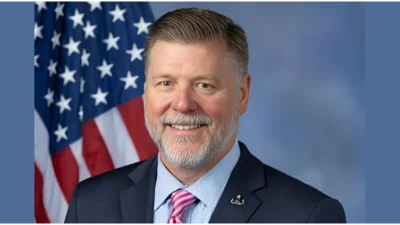Washington, DC -Today, Rep. Elijah E. Cummings, the Ranking Member of the House Committee on Oversight and Government Reform, sent a letter to Chairman Trey Gowdy requesting that the Committee launch an investigation and obtain documents relating to whether President Donald Trump violated federal law by concealing the payment to Stephanie Clifford.
“This week, President Donald Trump and his attorney, Rudy Giuliani, made a stunning revelation-Donald Trump, while serving as the sitting President, personally ‘funneled’ money through his attorney, Michael Cohen, disguised as a ‘retainer’ for legal services they admit were never provided, to reimburse a secret payment of $130,000 to Stephanie Clifford, the adult film star known as Stormy Daniels, in exchange for her silence before the election," Cummings wrote.
“Although President Trump and Mr. Giuliani appear to be arguing against potential prosecution for illegal campaign donations, they have now opened up an entirely new legal concern-that the President may have violated federal law when he concealed the payment to Ms. Clifford and his reimbursements for this payment by omitting them from his annual financial disclosure form," Cummings added.
Congress passed the Ethics in Government Act in 1978 to require federal officials to publicly disclose financial liabilities that could affect their decision-making on behalf of the American people. The applicable disclosure requirements “include a full and complete statement with respect to... [t]he identity and category of value of the total liabilities owed to any creditor... which exceed $10,000 at any time during the preceding calendar year."
The Office of Government Ethics, the federal office charged with implementing and overseeing this law, has issued regulations that require federal officials to disclose any liability over $10,000 “owed to any creditor at any time during the reporting period," as well as the “name of the creditors to whom such liabilities are owed."
The Office of Government Ethics issued an opinion making clear that these requirements are an “unambiguous statutory mandate." The opinion states, “Liabilities are commonly considered to encompass any debt or financial obligation. Likewise, a creditor normally includes anyone to whom a debt is owed."
When President Trump signed his financial disclosure form on June 14, 2017, he asserted that it was “true, complete and correct," but he did not disclose any liability to Mr. Cohen or any reimbursements for that liability.
Under federal law, it is a crime to knowingly and willfully make a false or fraudulent representation to a federal office or entity or to use “any false writing or document" that contains such a false or fraudulent representation.









